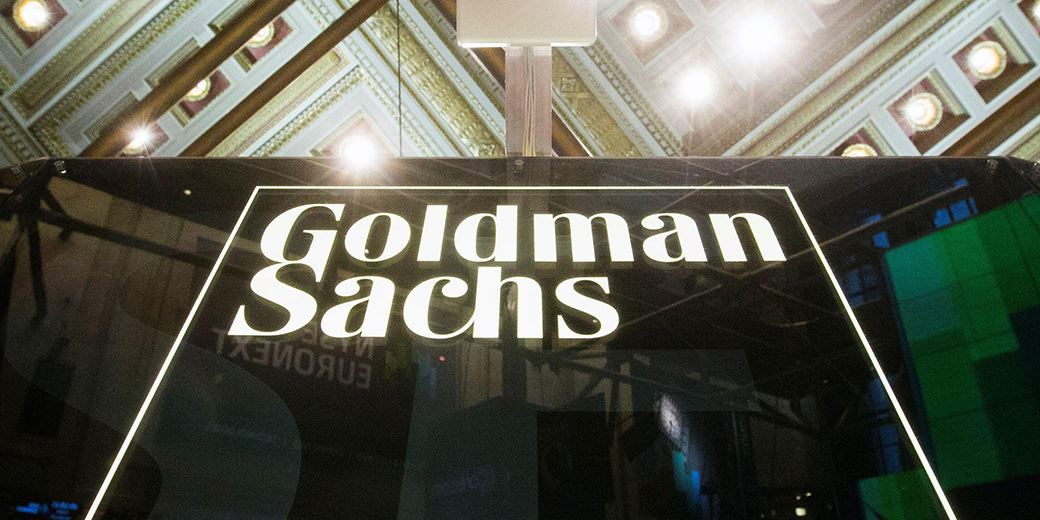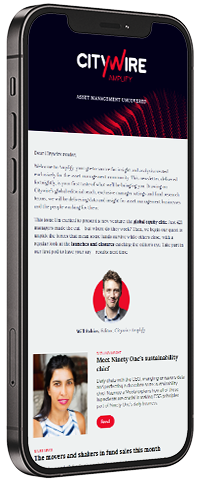There might be light at the end of the tunnel, but it ain’t here yet.
How Goldman’s fund arm became the world’s fifth-largest alts house

Latest Newsletter
Value stance rewards managers with first AAA rating
The year comes to a close with a host of managers gaining their AAA wings.
Real Life: A cheaper, smarter way to fly business to the US
Companies are clamping down on travel costs. Here’s how to travel in comfort while keeping the expenses department happy.
Community
Well-known for its investment banking and trading businesses, Goldman Sachs Asset Management (GSAM) is also actually the fifth-largest alternatives house in the world, with $420bn in assets under management.
It has been running private market strategies for more than 30 years, but for much of that time, the alternative investing units have been operating quietly in the background, without much public fanfare.
It held its first investor day in its more than 150-year history in January 2020 and revealed an alternative asset management business with $320bn in AUM. It has added nearly $100bn of AUM since then.
What, then, brought GSAM’s alternatives division out of its shell?
Jim Garman, head of EMEA alternatives, said that by 2018/19, the business already had several strategies from private equity to real estate. However, these were scattered around different divisions, like merchant banking or the historic GSAM business. Under David Solomon’s leadership they had two goals: pull all of these together under a unified platform and make every strategy available to every client.
At the start of 2021, all of the alternatives and traditional asset management businesses were brought together to create one division. Now, the group is also combining its asset and wealth management businesses into one unit.
‘The reason to do that was to put all our investment activities into one division, make all those strategies available to our clients but also make it easier for other stakeholders in the firm, the shareholders, to understand how we operate,’ Garman said.
The alternatives business has been able to grow both organically and inorganically, most recently closing its largest acquisition in 20 years with the purchase of NN Investment Partners. The deal allows GSAM to expand its footprint in Europe, reaching critical mass in The Hague. It also closed a $9.7bn private equity fund, its largest since 2007.
‘We feel very lucky in this market because we’re part of a big organisation that allows us to grow organically and inorganically,’ said Fadi Abuali, CEO of GSAM International.
‘We are in a position to offer our clients a broad diversified platform…which we think is unparalleled. It can be challenging to make a decision on one asset class versus another. We offer all that to our clients and give them as much advice as they need to arrive at the right answer.’
The alternatives platform now has around 1,000 people employed globally but bringing it all together had some challenges.
‘The internal challenges were bringing five different businesses around the firm together to create a single unified platform, which we were doing during the pandemic. That has worked pretty well. The external challenge has been helping our clients understand what our capabilities are and how we can help them,’ Garman said.
All that means spending more time listening to clients and what they want, according to Abuali. ‘We listen a lot and deeply. We spend a lot of time engaging clients, understanding their needs and requirements,’ he said.
This is particularly important given clients’ needs change over time. ‘We have everything from real estate and infra that has inflationary components, all the way through to impact investing,’ he said.
‘One of our goals is to make all our strategies available to all of our clients, including retail distributors. So, we are working on ideas and products that meet those needs and there is a need for income-oriented products. One of the things we are keen to do is to enable our retail clients the ability to access our private markets strategies in the same way an institution could, which historically has been a problem.’
While the firm will focus on growing its existing strategies, from more established ones like private equity to newer franchises like sustainable investing, the other area the team is paying attention to is creating European-focused products.
‘There are certain asset classes that are income-oriented like real estate or credit, which work well in a classic open-ended fund format,’ Garman said. ‘That’s been done before. The piece of the puzzle that is really interesting will be how to deliver more classic private equity-like strategies to retail investors where they are illiquid, they fund over time, or they’re long-term private investments.
‘How do you marry those features with the demands of a retail investor who wants to know what their commitment is, what liquidity rights they have? It’s something we’re focused on creating for investors.’
Latest Newsletter
Amplify Issue 30: The fund groups topping the tree
We analyse which groups have had the biggest inflows and outflows in 2022, look at managers achieving their first AAA ratings, and hear from Rob Kyprianou on why regulation gets it back to front.
Amplify Issue 29: Red hot: 2022’s private market hiring spree
2022 has been a hot year for private markets, but are asset managers putting the brakes on their expansion efforts? Plus, we look at how the bear market has affected launches this year and look at how firms can better communicate their brand values.
Amplify Issue 28: Fill your ESG product gaps
We hear from fund buyers on what they’re looking for from an ESG fund, find out what Neuberger Berman is plotting in the alts world, and learn the winners of Citywire’s Gender Diversity Awards.
Community
